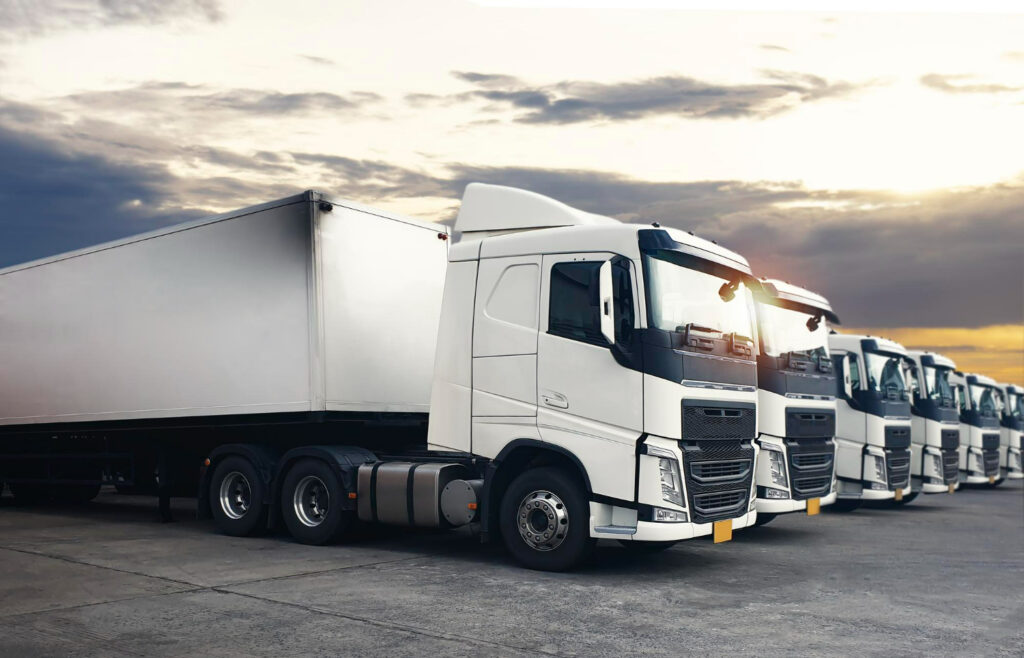How Can Trucking Be More Sustainable?

The trucking industry is crucial to the global economy, transporting goods and products across vast distances. However, it contributes significantly to environmental challenges, including air pollution and greenhouse gas emissions.
To address these issues, the trucking industry must embrace sustainability practices that reduce its environmental impact while maintaining efficiency and profitability. We will provide various ways the trucking industry can become more sustainable.
1. Efficient Route Planning and Data Analysis
One of the key strategies for making trucking more sustainable is efficient route planning and data analysis. Companies can reduce fuel consumption and emissions by analysing data and tailoring routes for trucking needs more effectively.
Companies can achieve this by using advanced technology and data analytics to optimize routes, considering traffic patterns, weather conditions, and delivery schedules. This reduces fuel consumption and minimizes the time trucks spend on the road, which can lead to cost savings.
2. Emphasis on Smooth Acceleration and Deceleration
Smooth acceleration and deceleration are essential aspects of sustainable trucking practices. Encouraging drivers to adopt smoother driving habits can lead to significant fuel savings.
Excessive fuel usage and accelerated vehicle deterioration result from aggressive acceleration and abrupt braking. By emphasizing smooth acceleration and deceleration, trucking companies can reduce fuel consumption, lower maintenance costs, and extend the lifespan of their vehicles.
3. Vehicle Maintenance and Upgrades
Maintaining trucks in optimal condition is crucial for sustainability. Regular maintenance checks and timely repairs can ensure that trucks operate efficiently and produce fewer emissions. Keeping engines well-tuned and replacing air filters regularly can improve fuel efficiency.
Additionally, investing in newer, more fuel-efficient vehicles or retrofitting older ones with environmentally friendly technologies can significantly reduce emissions and contribute to sustainability.
4. Alternative Fuels and Energy Sources
Another avenue for enhancing sustainability in the trucking industry is the adoption of alternative fuels and energy sources. Traditional diesel fuel is a major contributor to air pollution and greenhouse gas emissions.
Shifting towards more environmentally friendly energy sources, including natural gas, electricity, or hydrogen, can contribute to minimizing the industry’s environmental footprint. Many trucking companies are already exploring these alternatives to power their fleets, and government incentives and regulations are pushing the industry in this direction.

5. Aerodynamic Improvements and Trailer Design
Aerodynamics plays a critical role in the fuel efficiency of trucks. Features like streamlined truck bodies, side skirts, and trailer tails can significantly reduce drag and improve fuel efficiency. Trucking companies can reduce fuel consumption and emissions by investing in these technologies and designing trailers that optimize airflow.
6. Driver Training and Education
Truck drivers are at the heart of the industry, and their behaviour behind the wheel can substantially impact sustainability. Providing driver training and education programs focused on eco-friendly driving practices can make a difference.
Drivers can learn to minimize idling time, avoid excessive speeds, and follow fuel-efficient driving techniques. Incentives and recognition for eco-conscious driving can also encourage positive behaviour changes.
7. Load Optimization and Capacity Utilization
Efficient load optimization and capacity utilization are critical for sustainable trucking. Overloading trucks increases fuel consumption and puts extra strain on the vehicle’s components. Strategic payload capacity calculations and effective load distribution optimization are essential for diminishing fuel consumption and emissions while upholding safety standards.
8. Sustainable Supply Chain Practices
Sustainability in the trucking industry goes beyond just the trucks themselves. It also involves adopting sustainable supply chain practices.
Companies can work hand in hand with suppliers and customers to integrate environmentally responsible practices, such as minimizing packaging waste, improving inventory management, and endorsing eco-friendly materials. Sustainable supply chain initiatives can help reduce the industry’s overall environmental footprint.
9. Monitoring and Reporting
Trucking companies need to implement monitoring and reporting systems to track progress and meet sustainability goals. Collecting data on fuel consumption, emissions, and other sustainability metrics allows companies to identify areas for improvement and make informed decisions to enhance sustainability.
Final Say
The global economy relies heavily on the trucking industry, yet it introduces substantial environmental challenges. To make trucking more sustainable, companies must adopt a holistic approach that includes efficient route planning, driver training, vehicle maintenance, alternative fuels, aerodynamic improvements, and sustainable supply chain practices.
By implementing these strategies, the industry can reduce its environmental impact while maintaining efficiency and profitability. As the world prioritizes sustainability, the trucking industry must adapt to meet these demands and contribute to a cleaner and more environmentally friendly future.